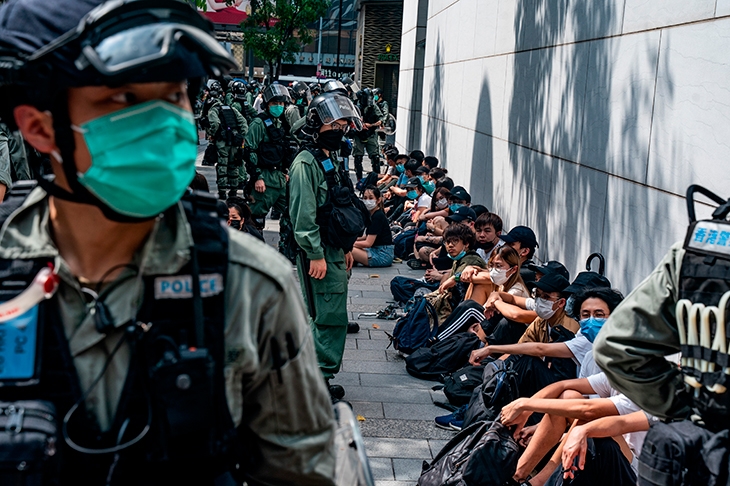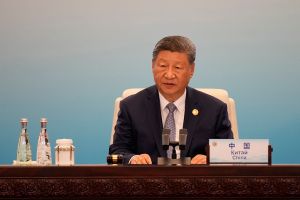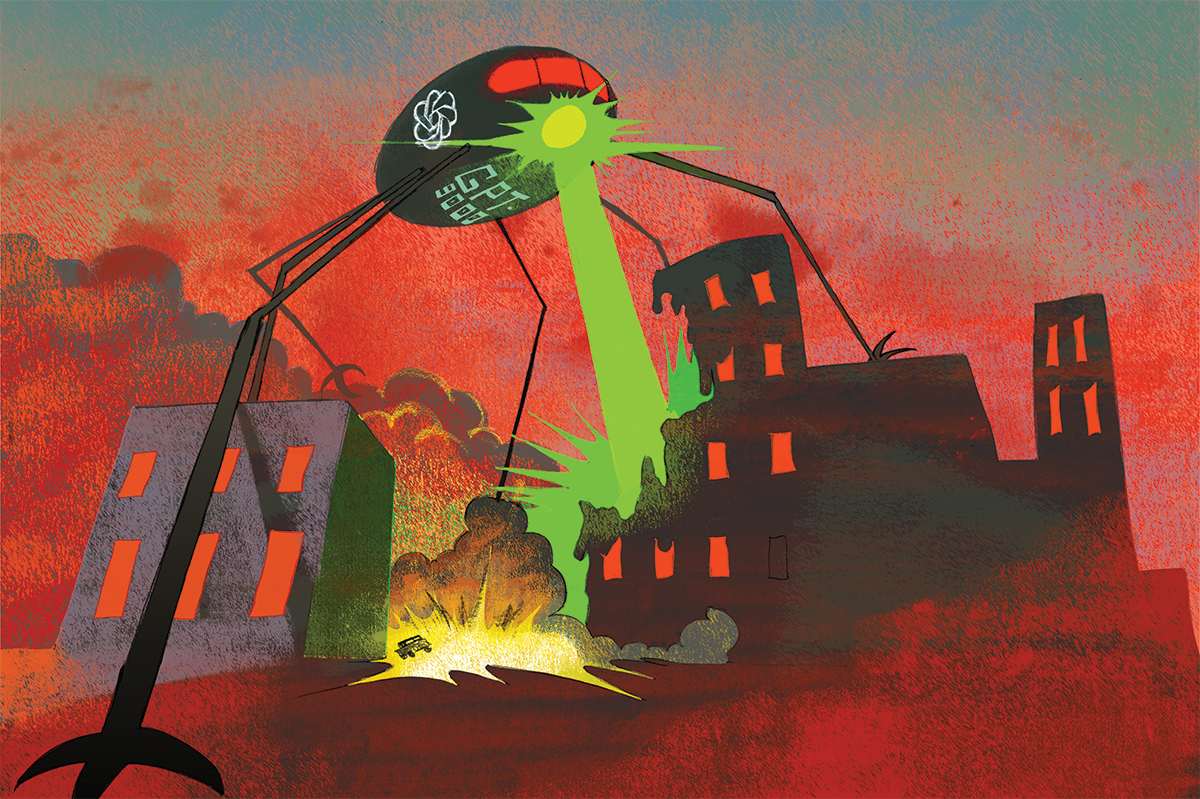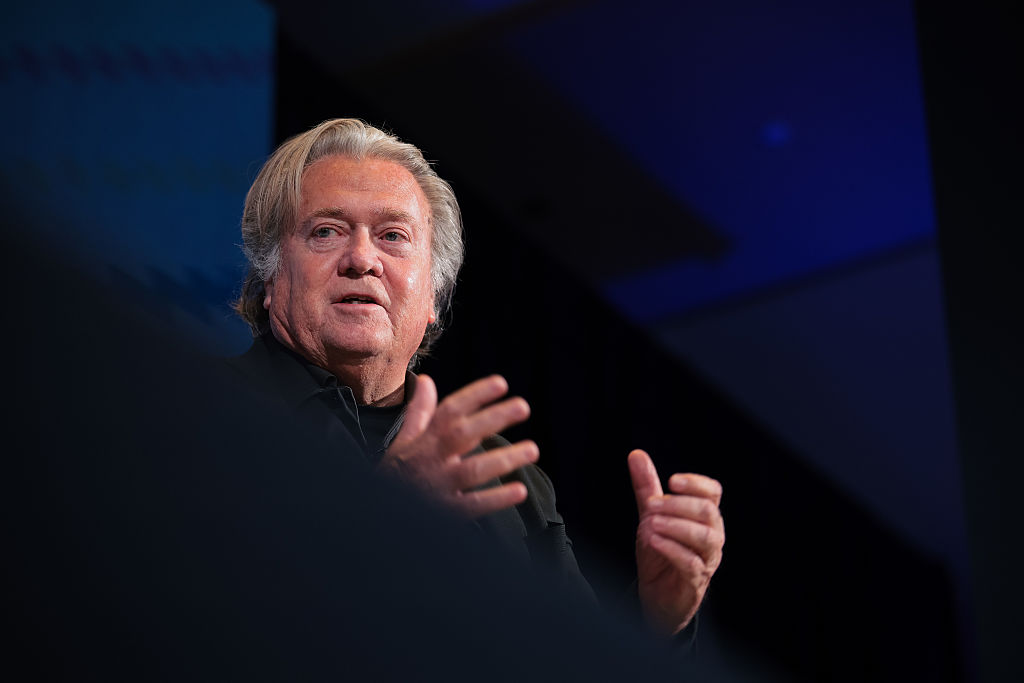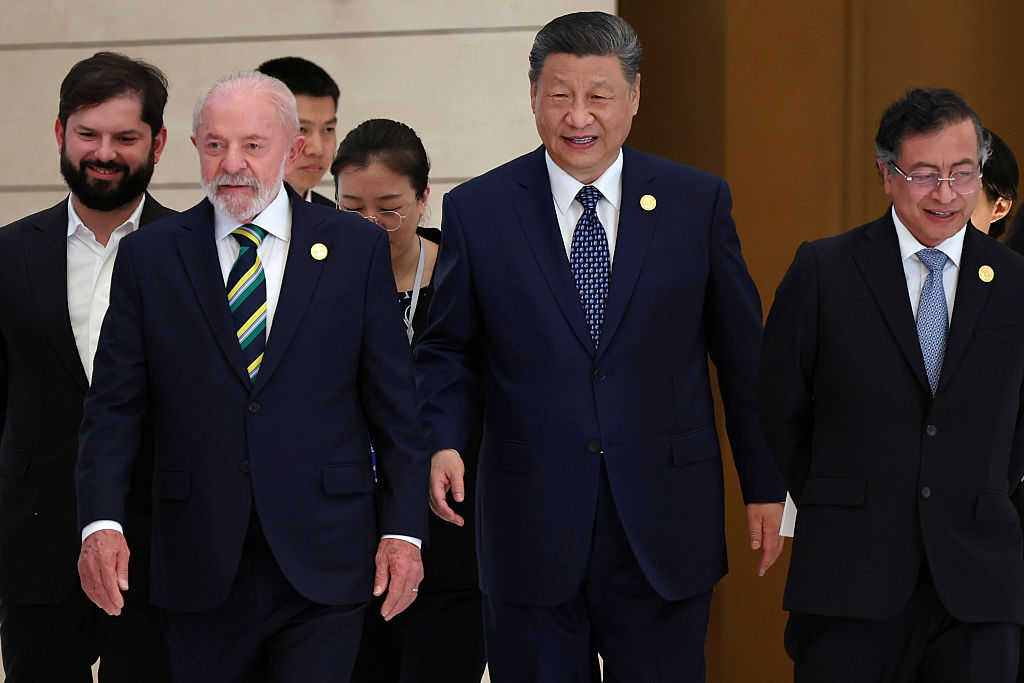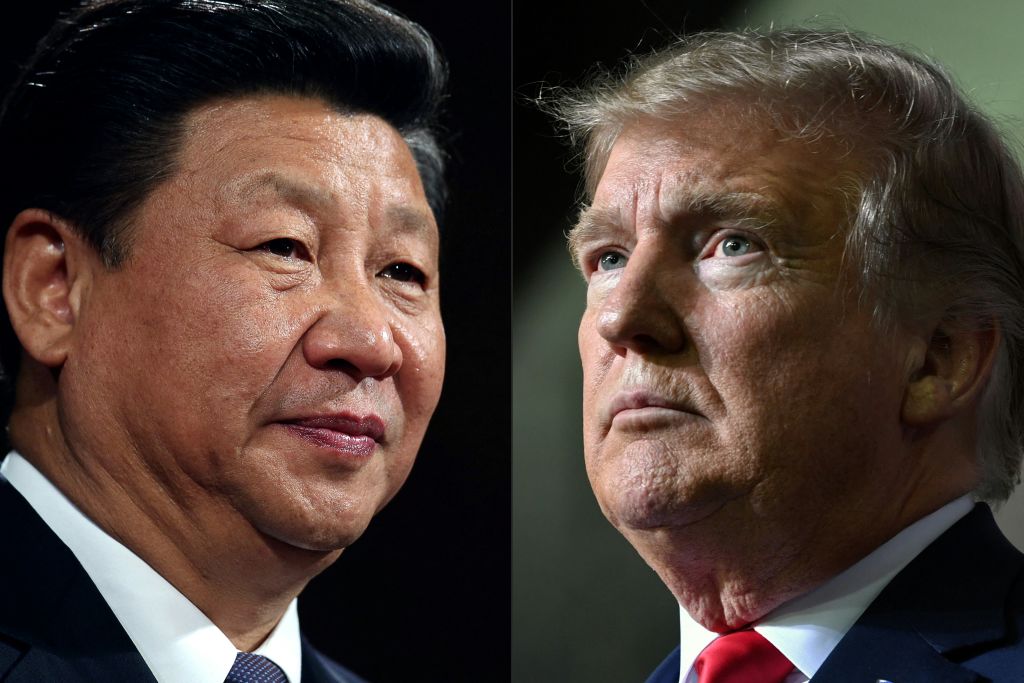This week in 1989, the Chinese authorities massacred protesters in Tiananmen Square, Beijing. I was editing this paper. It struck me that the people of Hong Kong would suffer huge collateral damage. The Spectator should campaign for them, I thought, and draw attention to the dangers of trusting China to honor the 1984 Sino-British Agreement which Mrs Thatcher and Deng Xiaoping had made to provide for the handover to China in 1997. So we turned the leading article into a two-page affair (a thing unheard-of) and devoted the whole cover to a drawing by Nick Garland of Britannia and the British lion, both kowtowing. The headline was ‘Our Betrayal of Hong Kong’. The politics of this was to exploit the difference between the prime minister, who I knew had always been uneasy about the 1984 Agreement, and her foreign secretary, Sir Geoffrey Howe, who loved it and always spoke of Hong Kong as a ‘Ming vase’ which neither Britain nor China should drop. The most politically controversial bit of our argument was that Britain should now ‘give right of abode to all United Kingdom passport holders in Hong Kong (about 3.25 million people)’. We added that ‘the paradoxical effect of having the right to leave will be that people will want to stay’. Although what she did fell far short of the full rights we called for, Mrs Thatcher did extend right of abode to about 200,000 ‘key personnel’. This helped restore some confidence. More than 30 years later, these arguments are now being repeated in uncannily similar form.
Although our cause was strongly supported by readers, there were some amusing personal reactions of dissent. The later-famed diarist Alan Clark said to me: ‘About every seven years people whom one otherwise respects get hold of a GMI [Great Moral Issue] and one just has to let it run its course.’ I gave lunch at the Savoy to Sir Percy Cradock, the brilliant Foreign Office architect of the policy I was attacking, by this time Mrs Thatcher’s foreign policy adviser. What did he think of our leading article? ‘I thought it was intellectually so weak,’ he replied. ‘Of course, it’s not your fault. You obviously got a China “expert” to write it.’ ‘Oh no,’ I said, ‘I consulted China experts, but I wrote every word myself.’ He was sweetly embarrassed. He said Hong Kong must not have democracy, because it would annoy the Chinese. He told me Mrs Thatcher disliked Deng when she met him, saying: ‘He’s very cruel.’ Sir Percy had replied: ‘He wouldn’t be where he was if he wasn’t.’
Sir Percy was certainly right that the Chinese Communist party gets very annoyed by democracy. It has displayed that annoyance decisively with its recent promulgation from Beijing of a new national security law for Hong Kong. He was also right about the sort who gets to the top in China, now perfectly embodied in Xi Jinping. But his belief that not annoying the Chinese should be the guiding principle of our dealings with them was misguided. Boris Johnson made this mistake just before the COVID outbreak, when he confirmed the Huawei deal, thinking this mattered more than annoying the Americans and laying our national security open to serious risk. He inherited the Cradock approach to China, which suspends critical judgment in the face of brute power, thus making that power even more brutish. Now, thank goodness, he knows he must change course.
Even in 1989, when communist China was much poorer and less powerful than today, lots of businessmen were overanxious not to displease it. At the time, I was writing a column for the Daily Express. Without warning, the one I wrote about Tiananmen Square was pulled. I refused to write an alternative. The rather shame-faced editor admitted that the spiking had been at the order of the chairman, Lord Stevens. He and I went to see the great man, who said: ‘I think the [demonstrating] students were extremely foolish… Only 600 died, you know.’ Eventually, after I had threatened resignation, my column on Hong Kong was reinstated, but published opposite an article by Lord Stevens himself, under the joint strap of something like ‘Two views on Hong Kong’.
[special_offer]
It would be wrong to blame captains of industry and commerce for trying to do deals with China — as it would to blame universities or governments — but the suspension of due diligence and the consequent evasions required are quite something. On Tuesday’s Today program on BBC Radio 4, Sir Andrew Kahn, a director of Huawei UK, asserted that his employer is a private-sector company owned by its workers — ‘the John Lewis of China’. He must know this is misleading. The ownership of Huawei is based, it seems (the structure is fascinatingly opaque), on a trade union. The trade union is controlled by the Chinese Communist party. The company is state-capitalist. John Lewis should sue Sir Andrew for the libelous comparison.
There is something about Chinese totalitarianism which brings out the silliness of many clever people. I suspect it is to do with the fact that Chinese civilization, being old and arcane, makes a certain type of person prize uncritically whatever privileged access he gains to the country. Two weeks ago, I mentioned the fellow-traveling influence of Joseph Needham, Cambridge’s indisputably scholarly historian of Chinese science. Here he is writing to the Cambridge Review in 1976, the last year of Chairman Mao’s reign. He rebukes a lecturer in Chinese, Michael Loewe, who had criticized the regime: ‘On the question of the number of executions which took place during the Revolution and since then, I much regret that Dr Loewe…is evidently unaware that the expression translated by “liquidation” carries the meaning of solving a problem, and by no means necessarily implies the disappearance of the offender.’ And perhaps ‘final solution’ in German meant completing the crossword.
This article was originally published in
The Spectator’s UK magazine. Subscribe to the US edition here.



